Game Review
by James Beckett,Metaphor: ReFantazio
Xbox Series, Playstation 4/5, Windows
| Description: |  |
||
The United Kingdom of Euchronia and its many tribes of diverse races have been thrown into chaos. The king has been assassinated, leaders of the Military and the Sanctist Church vie to fill the void of power, and the crown prince has been locked away in hiding after being put under a sleeping curse. Suddenly, the cracked stone visage of the dead king appears in the sky and announces that a new king will be chosen through a strange ritual of rite and rallying, where the true desires of the kingdom's citizens will be gleaned to determine the inheritor to the throne. In an effort to save the prince from his curse and restore order to the land, an Elda boy and his faerie companion, Gallica, have been tasked with teaming up with wanders and warriors from Euchronia's tribes and climbing the ranks of the king's tournament. Not only that, but they have been granted access to the mysterious powers of the Archetypes, spirits of mythical warriors from the stories of legend, and their new fantastical abilities might be their only hope at winning the throne… |
|||
| Review: | |||
After bringing Atlus some of its greatest accolades and global impact ever with the release of Persona 5 in 2016, legendary Shin Megami Tensei and Persona director Katsura Hashino founded a new team at the company, Studio Zero, with the express interest of exploring new worlds and gameplay ideas that weren't necessarily tied to Atlus' most famous franchises. This is how Metaphor: ReFantazio came to be. Depending on how much you've seen about this brand-new title, you may or may not be surprised to discover that, despite featuring a novel fantasy setting and a class-based battle system that does not involve negotiating with enemies and fusing collected demon companions, Metaphor: ReFantazio is not shy about making its shared DNA with Hashino's previous SMT/Persona titles apparent. In addition to featuring the instantly recognizable character designs from Shigenori Soejima and an eclectic soundtrack from Shoji Meguro, Metaphor: ReFantazio also incorporates plenty of hallmark stylistic flourishes and gameplay cornerstones from Atlus' past titles, though they've all been remixed and refiltered though the fascinatingly unique new setting and genre trappings that Hoshino and Co. clearly have a blast getting to play around with. Make no mistake, while Metaphor: ReFantazio is not a Persona game, it's not not a Persona game, either, but its inextricable ties to the games that came before that actually ends up being a strength, not a weakness. By building upon and reflecting on everything that Atlus' veteran developers have learned over the past twenty-five years, Metaphor: ReFantazio doesn't just stand tall and proud beside its forbears — it may very well surpass them. 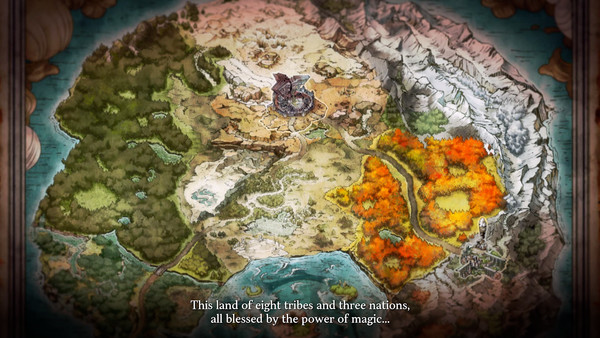 ©Atlus, ©Sega 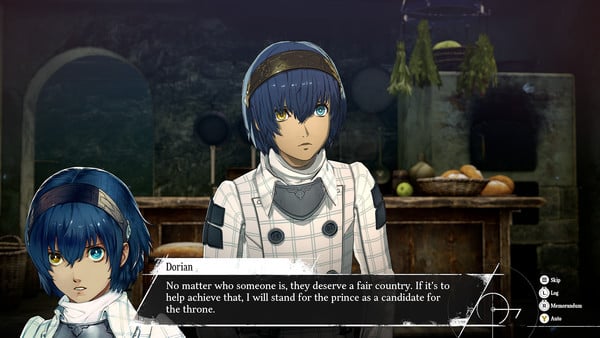 ©Atlus, ©Sega What you will be struck by first after booting up Metaphor: ReFantazio is how the team at Studio Zero has leveraged all of their artistic skills and proclivities to create an utterly gorgeous fantasy world to both explore and fight to save. I've put hundreds of hours into the Shin Megami Tensei and Persona games over the years, so it is going to be impossible for me to reckon with a lot of what Metaphor: ReFantazio is doing without making some direct comparisons, but everything about this new game's setting and style feels completely refreshing. The diverse and painterly landscapes that make up the different biomes and regions of Euchronia give it an almost dreamlike quality as if a fairy tale was being filtered through the fractured lens of a dozen different shifting interpretations all at once. Throughout your adventure, you will be treated to the sounds of Shoji Meguro's soundtrack, which is very different than anything you've heard in a Persona game, and also maybe his best work yet? My wife and I haven't been able to stop humming the crazy battle theme in all the weeks I've been powering through this beast of a game. Speaking of “beasts,” it's worth pointing out that the races, or “tribes,” of Euchronia manage to walk that fine line of being allegorical representations of different real-world factions and ideologies without being reduced into mere cheap stereotypes. Yes, it is easy enough to reduce the tribes to their most singular characteristics: There are the horned Clemar, the elven Roussainte, the ancient Rhoag, the angelic Ishkia, the fae Nidia, the doglike Paripus, the three-eyed Mustari, and the adorable Eugief, who look like if you crossed a bat with a jerboa. Our player character is an Elda, which actually means he looks the most human out of anyone, but it doesn't prevent him from experiencing the discrimination that is so common for any of the “lesser” tribes. Still, these peoples are all presented as complex and, well, human, which means that the game is able to echo the tribal conflicts and political strife that real-world cultures endure without drawing any problematic one-to-one parallels where “X-tribe equals X-country-from-Earth” or anything like that. Actually, maybe “human” isn't the best way to describe the various collectives in Euchronia, because so-called “Humans” are very specific, very deadly threats that have been tearing Euchronia apart for years, and that's on top of all the political upheaval. These freakish, surreal beasts—many of which seem plucked straight from the phantasmagorical nightmare imagery of artists like Hieronymus Bosch—are just one of the many mysteries that the Protagonist and his party will plunge into solving during your journey with them, which is just as lengthy and filled with twists and turns as the infamously dense Persona 5. Expect to spend dozens of hours on this one, folks, especially if you're a completionist who wants to see everything. 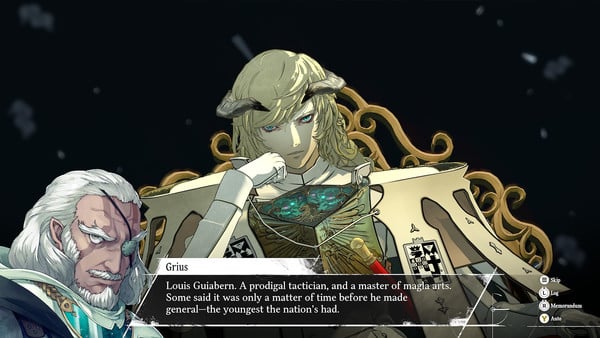 ©Atlus, ©Sega 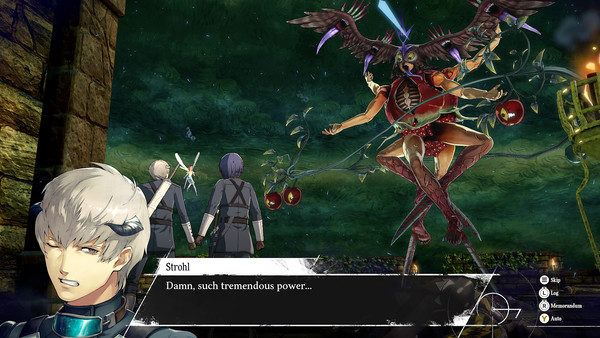 ©Atlus, ©Sega Seeing everything is going to be a tall order, too, because one of the key similarities shared by Metaphor: ReFantazio and its Persona predecessors is the complex time-management system that weaves its way into every aspect of gameplay. Instead of being driven by a traditional Japanese school calendar, though, Metaphor: ReFantazio's propulsive plot is structured more akin to what Atlus has described as a “road-trip” story. The Protagonist and his friends are never stuck in any one of Euchronia's cities or ports for long, especially once they gain access to a giant mechanical strider called a Gauntlet Runner, and the dungeons they frequently find themselves delving into are real ruins and labyrinths strewn across the land, rather than expansive, abstract mindscapes constructed from magical energy and the collective unconscious. The plot's urgent pacing means that the milestones of our heroes' journey are separated by mere days of time, rather than endless weeks of plumbing dungeon depths and hanging out with a dozen different NPCs while waiting for the story to advance, and it makes such a world of difference for Metaphor: ReFantazio's fun factor. While you still have to build up your personality traits, develop relationships with your Followers, and keep up with deadlines, you never feel like you are simply killing time. Certain side quests that you pick up along the route of the tournament have strict time limits, and key decisions have to be made about which pit stops and detours you can afford to make before the rest of the kingly competition begins to leave you in the dust. Thankfully, this only ever amounts to the good kind of gameplay stress, as Metaphor: ReFantazio provides so much streamlining and quality-of-life improvements to the calendar management formula that I don't know how I'll be able to go back to older Persona titles. Follower storylines progress based on the timeline of the road trip, for instance, and are not so much dictated by whether or not you pick the exactly correct dialogue options in conversations with them (even when they don't fit your protagonist's personality). For once, this feels like a game that you can play optimally without having to resort to a meticulously cataloged spreadsheet of which people to talk with on such-and-such day of the week during whatever weather conditions while you have six specific Arcana equipped and are also eating enough burgers to be adequately developing your Courage stat (however the hell that is supposed to work). Side quests consistently reward stat exp in addition to items and monetary rewards, too, so you don't feel so bad for wanting to play the game at your own damned pace instead of trying to cram all the dungeon gameplay into a single session in order to preserve the “optimal” amount of finagle the other systems require. 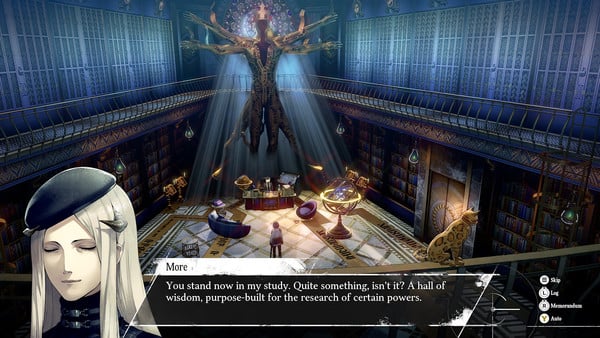 ©Atlus, ©Sega 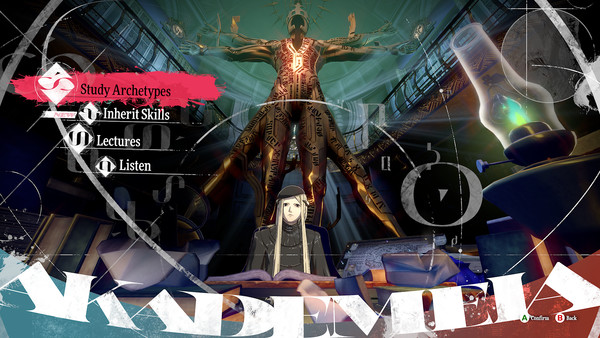 ©Atlus, ©Sega When it comes to “playing the game,” the other half of Metaphor: ReFantazio's gameplay loop is also defined both by what it has borrowed from its predecessors and the new paths it has carved for itself instead. In dungeons, combat is divided into simple hack-and-slash maneuvers for lower-leveled enemies that can clear out whole floors in a matter of minutes, depending on how much you've chosen to grind up your stats. During Party Combat, though, the game shifts into a very familiar over-the-shoulder, turn-based mode that will be instantly recognizable to anyone who spent time scouring Tartarus and looting Palaces with the Phantom Thieves. Not only are many of the spell and ability names pulled straight out of Shin Megami Tensei, but the general pacing of the Press Turn combat system from the SMT games is the foundation of every battle. Turn icons act as a kind of currency that you have to use or lose with every attack and spell, with the most powerful attacks and combinations coming at the cost of losing out on turns, and the strategic manipulation of enemy weaknesses and turn icons is key to victory. Of course, where Metaphor: ReFantazio sets itself apart is its Archetype system, which feels like a natural evolution of the “Job” systems pioneered by RPGs like Final Fantasy V and Dragon Quest VII. As the Protagonist makes new allies and advances his Follower bonds, the whole party will gain access to dozens of different Archetype classes that are leveled up using a separate EXP resource and can be switched between at will. Ranking up the classes gives you access to new skills and spells that can be further refined to become equippable across other Archetypes, which gives the player an incredible amount of freedom to customize each character's archetype while still ensuring that no one job ever loses its unique identity. The sword-swinging Warrior can keep some of the Pugilist's bone-crushing punch attacks in its back pocket for a rainy day, for example, while the spell-slinging Mage can add some of the Merchant's unique skills to its repertoire, just in case you run out of MP and need to rely on your spare cash to do some damage. All in all, it is a shockingly well-balanced and addictive foundation upon which to refine the classic Shin Megami Tensei blueprints. Battles are never boring, and the wide array of weaknesses and encounter-specific variables to keep track of can result in some genuinely challenging bouts against the “Human” menace that plagues Euchronia. Sometimes, turn-based RPGs struggle to find the right balance between being challenging enough to avoid mindless button mashing without turning each minor encounter into a drawn-out slog. I think Metaphor: ReFantazio nails it. 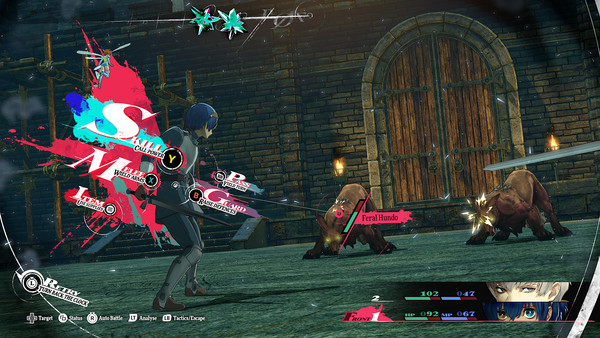 ©Atlus, ©Sega 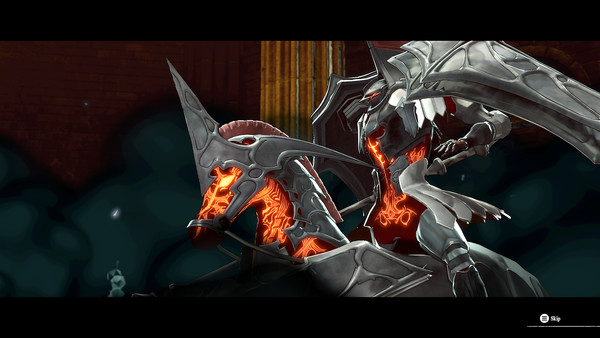 ©Atlus, ©Sega Finally, I can't talk about all of the things that Metaphor: ReFantazio does right without singing the praises of its story and cast. While the script does occasionally fall victim to the somewhat predictable plot beats and reveals, the strength of the core party and their growing bonds is such that it is hard to be too annoyed when you figure out how a plot thread is going to wrap itself up an hour or two before the game gets you there. For one, our Protagonist has an actual voice this time around, and it's rather incredible how such a small change makes such a huge difference. After all, a core theme of Metaphor: ReFantazio is the way that people are so easily brought together or torn apart based on the qualities of those who lead them, and it makes it so much easier to feel the connection and admiration that our hero is building with his Followers. Strohl is a Clemar whose reliable friendship makes him an easy guy to like, while the Roussainte Hulkenberg is as adorable as she is intimidating, seeing as the only thing about her that is more imposing than her stature is her ravenous appetite for the weirdest goddamn foods. Gallica is your stalwart faerie companion who makes the perfect guide and confidant, and she is the only other Follower who can talk to the enigmatic More, who occupies the realm of Akademia and facilitates the development of your Archetypes. There are so many more allies, playable and otherwise, who make up Metaphor: ReFantazio's excellent cast, though my favorite has to be Heismay the Eugief. It isn't just that he's the cutest little warrior this side of Catbug, but his tiny stature stands in contrast to his role as the party's world-weary but devoted old man. When the party members discover their Archetype powers, they do so by ripping their hearts out of their chests—because of course they do—and it turns out that those hearts are also old-fashioned microphones through which they declare their intent to cast aside their anxieties and fight for what is right—because of course they are. These sequences are thrilling and ludicrous every time they happen, but never more so than when it happens to the little guy who looks like he has just escaped from the cage of a local elementary school classroom. God bless you, Heismay. 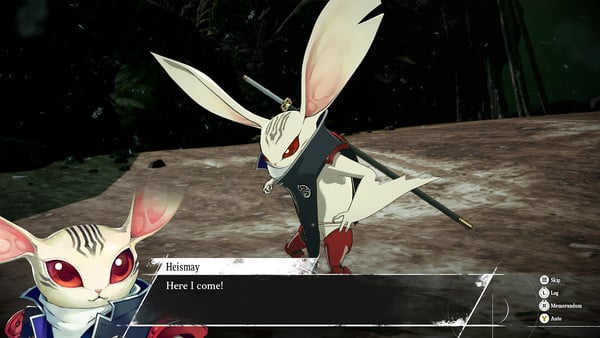 ©Atlus, ©Sega 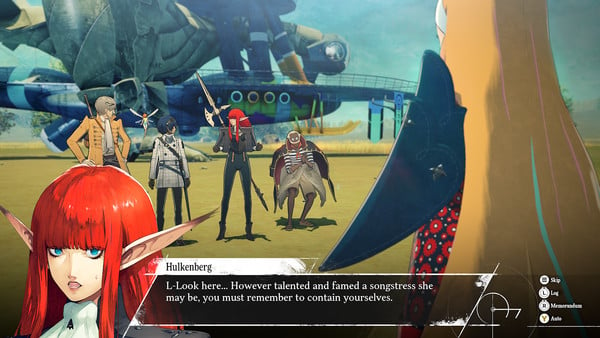 ©Atlus, ©Sega I have been trying very hard to chronicle my criticisms of Metaphor: ReFantazio in this review, but the truth is that I just don't have very many. It's incredibly long, yes, but the game never makes any of that time feel like a chore, and I imagine most JRPG fans will be overjoyed to spend so much time with this world and its characters. The story can stumble across some of the more predictable beats that any longtime fan of the genre will be able to see coming, but this is also a game where the giant, disembodied face of a dead king uses unspeakable magicks to transform his lands into a spirit-guided democracy while a band of merry beast folk and elves rip microphones out of their chests to transform into warrior-ghosts from ancient legends, so you can't exactly accuse Atlus and Studio Zero of lacking creativity. The reason it is so hard to find fault with Metaphor: ReFantazio is that it takes everything players loved about the stories and mechanics of previous titles and synthesizes them into an uncompromising and blisteringly confident new vision. I've spent dozens of hours exploring every nook and cranny of this crazy and beautiful world that Studio Zero has dreamt up, and I cannot wait to go back and spend many more hours with it. I know I've repeatedly been going back to the well of comparing Metaphor: ReFantazio to previous Atlus RPGs, but if you take anything away from this review, it shouldn't just be that this is an excellent RPG when compared to the classics of the Shin Megami Tensei lineage. This is one of the best games that Atlus has ever made, period. The king is dead; long live the king.  ©Atlus, ©Sega |
|
The views and opinions expressed in this article are solely those of the author(s) and do not necessarily represent the views of Anime News Network, its employees, owners, or sponsors.
|
| Grade: | |||
Overall : A+
Graphics : A
Sound/Music : A
Gameplay : A
Presentation : A+
+ Fantastic and dreamy fantasy world that is gorgeously realized with Atlus' signature flair, well-written and dynamic characters that are engaged in a compelling plot, Synthesizes classic Shin Megami Tensei/Persona mechanics with bold creative flourishes, Archetype system is exceptionally customizable and rewarding to experiment with, Infectious and eclectic score |
|||
| discuss this in the forum (20 posts) | | |||